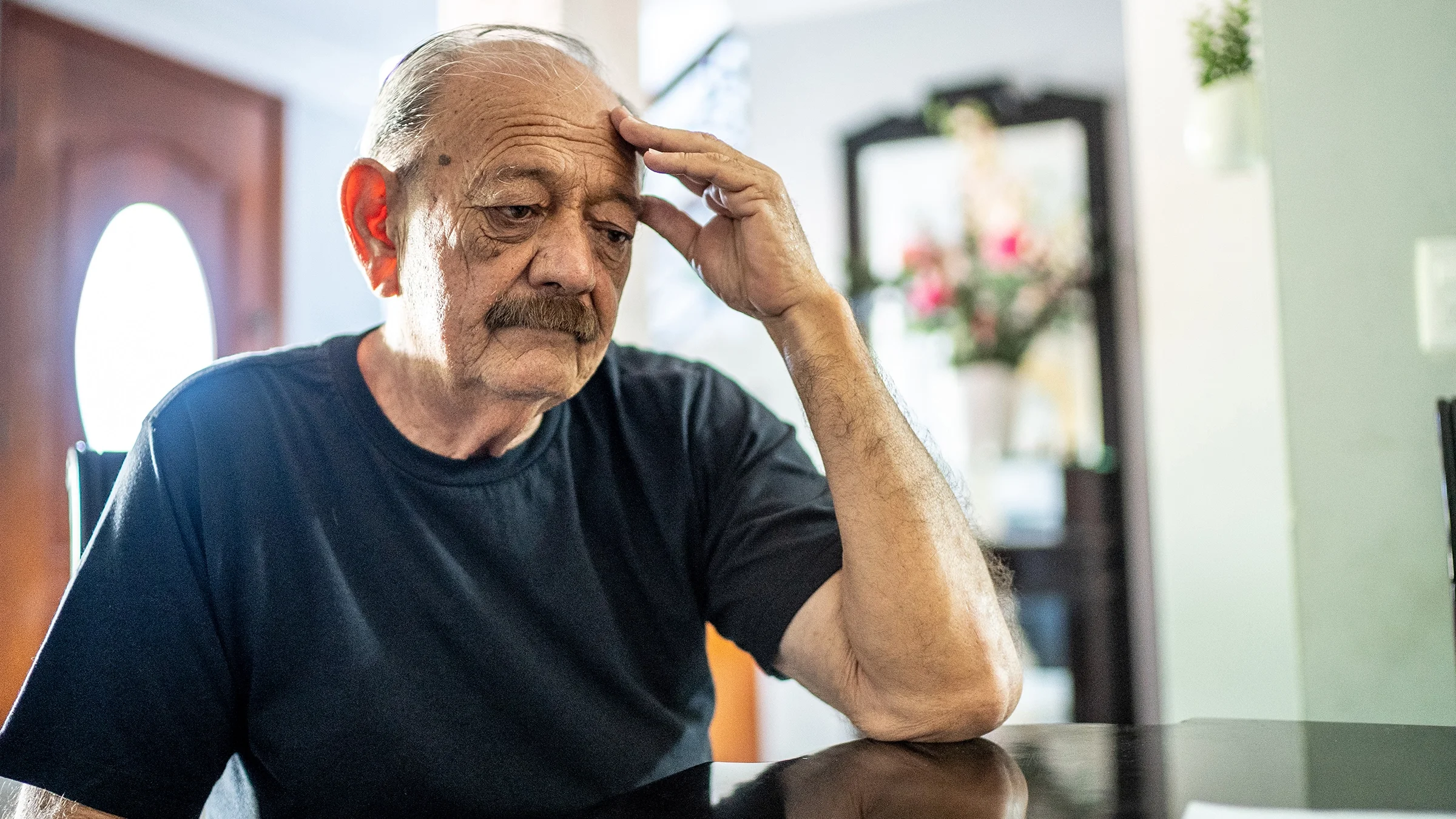Key takeaways:
Loneliness is more than just a feeling. It has a direct impact on your physical and mental health that can increase the risk of dying.
Feeling lonely for a prolonged period of time increases your risk of several health conditions. These include heart disease, dementia, and depression.
There are small steps you can take to reduce feelings of loneliness. It starts with recognizing whether you or someone you know is feeling lonely.
No one likes to feel lonely, though everyone does at times. For some, loneliness can turn into a more long-term issue. This has many people asking: Can you die of loneliness?
This is a serious question and an area of ongoing research. Experts now know that loneliness isn’t just an emotion — it can affect your health in many ways. Addressing loneliness is important for living a healthier, happier life.
In this article, you’ll learn about the risk factors for loneliness, its impact on your health, and strategies to combat it and improve well-being.
Search and compare options
So can loneliness really kill you?
Loneliness is a growing health concern worldwide. Research shows that chronic loneliness — feeling lonely most of the time or for extended periods — increases our risks for serious diseases and even early death. The risk of death appears higher among those of us who report more frequent episodes of loneliness.
One major analysis of this issue showed that persistent loneliness carries about a 50% increased risk of premature death. This is like smoking 15 cigarettes a day.
Beyond mortality, research links loneliness to many other health risks.
Mental health impact of loneliness
Loneliness can also hurt your mental health. Studies show a strong link between loneliness and depression. When we feel lonely for a long time, we may become increasingly sad, anxious, or depressed. This can create a vicious cycle because feeling down causes more loneliness.
When people experience loneliness, they tend to withdraw further from social situations. But this can reduce the opportunity for positive interactions with others. Avoiding social events repeatedly can reinforce feelings of isolation and despair. This in turn makes it even tougher to break the cycle.
Physical health impact of loneliness
Loneliness doesn’t just affect how we feel. It can also affect our bodies. People who are lonely often have weaker immune systems and increased inflammation. This can also make it harder for our bodies to fight off illness. This can also contribute to various health issues, including heart disease.
Loneliness and older adults: People are more likely to experience loneliness as they get older. Learn how it affects older adults in particular and what you can do about it.
Are you depressed? The common signs and symptoms of depression go beyond just a low mood. They can include changes in sleep and appetite.
Depression and memory loss: It may not be dementia. Loneliness and depression can lead to memory loss — but treatment can help.
Chronic loneliness has also been linked to memory loss and cognitive decline in older adults. Like depression, this can create a cycle where cognitive decline leads to greater isolation, which causes increased loneliness.
Another concerning aspect is that when people experience loneliness, they’re less likely to engage in healthy behaviors like exercise, balanced eating, and keeping up with routine medical check-ups. This can lead to weight gain, diabetes, and high blood pressure.
Both the direct effects of loneliness and its influence on lifestyle choices create a dangerous situation for our physical health.
Read more like this
Explore these related articles, suggested for readers like you.
Risk factors for loneliness
Certain factors increase our likelihood of experiencing loneliness. Recognizing these risk factors is important so you can take action. (We’ll cover this in the next section.)
The risk factors for loneliness include:
Older age
Living alone
Having a smaller social network
Financial limitations
Medical conditions that limit your mobility or your ability to leave home
Major life changes, including the death of loved one, divorce, or retirement
How to combat chronic loneliness
While loneliness can be tough, there are ways to combat it. Building and maintaining social connections is essential. Here are some effective strategies:
Reach out: If you’re feeling lonely, connect to friends or family. A simple phone call or text can help re-establish relationships.
Join a club or group: Finding a hobby or interest group can lead to meeting new people. Book clubs, religious organizations, sports teams, or community classes are common options. These activities not only keep you engaged but also provide opportunities to form new friendships with others who share similar interests.
Volunteer: Helping others can create a sense of purpose and connection. Volunteering allows you to meet people while positively impacting your community. And local organizations are always looking for volunteers.
Attend local events: Look for community events like fairs, markets, or concerts. These gatherings provide a sense of community and a relaxed environment to socialize in.
Speak to a professional: Sometimes loneliness can feel overwhelming. Speaking to a healthcare professional can help. Therapists can provide valuable tools and support to help you navigate your feelings and develop strategies to cope.
Importance of social connection
Building a strong social network can act as a buffer against loneliness and stress. Studies suggest that people with good social connections tend to be happier and healthier. Social support reduces stress and improves overall mental well-being.
Social connections can also improve our sense of belonging and purpose. Feeling part of a community can significantly improve mood and outlook on life. These connections strengthen emotional resilience, making it easier to face challenges.
Finding support and resources
If you or someone you know is feeling lonely, it’s important to seek help. Community centers, counseling services, and support groups are all good starting points. Websites like the National Alliance on Mental Illness offer helpful information and support for anyone facing mental health challenges, including loneliness.
Consider using online platforms and social media to connect with others. While face-to-face interactions are valuable, online friendships can also provide support and companionship. If you use social media to connect, it’s important to balance online interactions with real-life connections.
Recognizing and helping when someone else is lonely
You may be reading this because you’re worried about someone else who might be feeling lonely. If someone in your life seems isolated, check in with them regularly. Ask how they’re doing, or invite them to hang out or participate in an activity.
Small gestures of kindness — like sending a text or sharing a meal — can significantly impact the well-being of someone who is feeling lonely. Being there for someone who feels isolated not only supports them but can also strengthen your own social bonds.
When talking to someone who’s feeling lonely, offer active listening. Simply being present and showing you care can mean a lot. If you can, encourage them to seek help. Support them in finding activities, groups, or resources that can help them connect with others.
The bottom line
Loneliness can have serious effects on both mental and physical health. If you or someone you know is lonely, it’s important to acknowledge these feelings. This recognition allows you to begin taking proactive steps to foster social connections. Consider consulting a medical or mental health professional. Reaching out for help is always a sign of strength!
Remember, the journey to overcoming loneliness begins with small steps.

Why trust our experts?


References
Barjaková, M., et al. (2023). Risk factors for loneliness: A literature review. Social Science & Medicine.
Hawkley, L. C., et al. (2009). Loneliness predicts reduced physical activity: cross-sectional & longitudinal analyses. Health Psychology.
Holt-Lunstad, J., et al. (2010). Social relationships and mortality risk: A meta-analytic review. PLoS Medicine.
Kraav, S., et al. (2021). Depression and loneliness may have a direct connection without mediating factors. Nordic Journal of Psychiatry.
Pourriyahi, H., et al. (2021). Loneliness: An immunometabolic syndrome. International Journal of Environmental Research and Public Health.
Sun, B., et al. (2024). The mediating effects of hope on the relationships of social support and self-esteem with psychological resilience in patients with stroke. BMC Psychiatry.
Yu, X., et al. (2023). Association of cumulative loneliness with all-cause mortality among middle-aged and older adults in the United States, 1996 to 2019. Proceedings of the National Academy of Sciences of the United States of America.

















